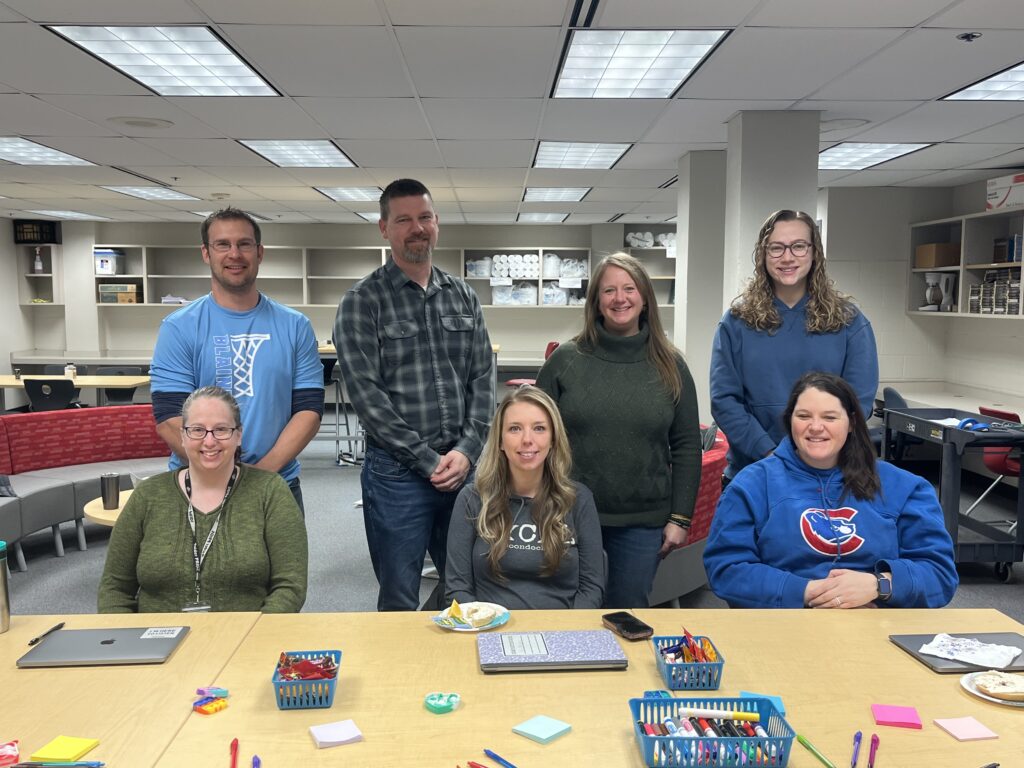Education Minnesota-Roseville is the only local in the state to participate in the American Federation of Teachers’ Teacher Leader Program, which aims to bring teacher voice to district decisions on what is needed to help educators and students succeed.
The goal of this program is to empower teachers to be more active in the policy and “behind-the-scenes” workings of education. The program culmination is an action research project related to education policy reform. The group meets once a month for six hours on Saturdays.
“Participants report feeling connected to the district through conversations with school board members and other district leaders. This is a place for real conversation for positive change, even if change doesn’t happen immediately. Our union negotiators also use the research from the teachers in the program for contract negotiations,” said Jodi Kyllonen, who previously took part in the program and is now in her third year as facilitator.
AFT provides funding so that each teacher receives a $1,500 stipend upon successful completion of the program.

“Being an activist since high school myself, I jumped at the chance to make change where I work,” said Shelly Chermack, a math teacher at Roseville Area High School who also works with credit recovery and the district’s Project Hope program. “The stipend was an incentive, too. This is a lot of what we do already with no additional pay.”
All locals in Minnesota are eligible to participate in the program as members of the AFT. AFT has an application to apply to the Teacher Leader Program, asking about size of district, what benefits your district would gain from being part of the program and how you are going to recruit members.
In May, the group presents their issue and research to the district and the union shares it out on their website.
Topics from last year’s program included rethinking sheltered content instruction, educator support staff shortages, exploring implications of educator emotional and mental health, digital literacy and 21st Century skills development at Roseville Area High School, a look at the teacher retention program, workload considerations in early childhood special education, the benefits of implementing the pyramid behavior model with fidelity and the importance of purposeful academic calendars.
The participants find topics to focus on, something they want to see addressed or improved. They then look at finding data within their district or nationally to support their topic and inform their findings. Supporting documents might include surveying colleagues or finding published research. Part of the programming also includes inviting leaders in education from the community to join the group meeting for about an hour for a conversation about their role in education.
“This program gives staff members a ‘seat at the table’ in making decisions within the district. Being proactive for positive change rather than just reactive or frustrated/complaining,” said Kyllonen.
The camaraderie between colleagues from across the district and the additional connection to their union are important pieces to Kyllonen.
“I did a different class with the union, the early career seminar, and really enjoyed that and wanted to see what else I could participate in,” said Lucy Mehlan, a science teacher at Roseville Area Middle School.
Making change in the place she works was also important for Mehlan.
“I’m a science teacher, so I like research, but I was especially interested when I heard I would be talking to higher-ups,” she said. “I want to make Roseville Schools a better place.”
Through the AFT Teacher Leaders Program, local affiliates have:
- Established relationships among teachers and policymakers, community organizations and community leaders.
- Developed an informed teacher voice to participate in both the local and national dialogue on education.
- Established a vehicle for positive messaging about public schools and their unions.
- Created a pipeline for future school and union leaders.
Participating teachers develop expertise in:
- Building a collaborative culture.
- Accessing, using and presenting relevant research that connects policy with practice.
- Becoming advocates for teachers, students and their families, and for public education.
- Understanding policy issues and making recommendations to and through their unions.
In Roseville, a handful of past participants have stayed connected with the program and now participate in a special cohort with AFT at the national level.
“It’s all about keeping people involved,” said Kyllonen. “I hope we keep getting new cohorts of teacher who want to join the program and seek out positive change within the district. I hope alumni from the program go on to be leaders in their building, more active in the union and also even at the state level.”


